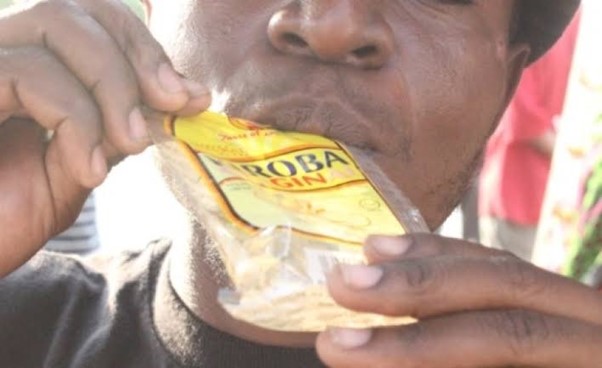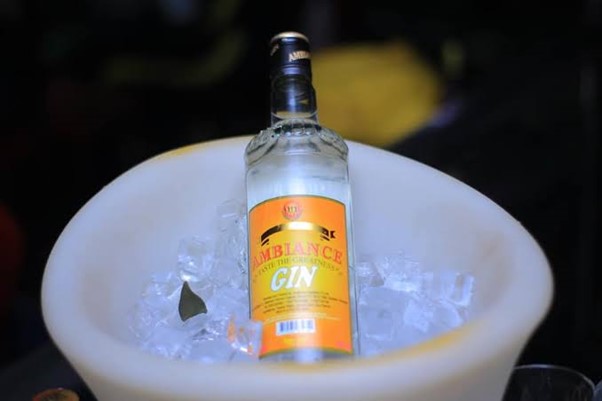Several years ago, in Tanzania, the market saw a surge in the popularity of affordable alcoholic drinks—vodka, gin, and other spirits—commonly referred to as Viroba. This name originated from the first widely known brand packaged in small plastic sachets, and over time, it became the generic term for similar products.
These drinks became notorious for their high alcohol content, ranging from 35% to 45%, combined with affordability and easy accessibility. They were trendy among young students and low-income communities, making them a cause for concern.
At their peak, brands such as Zed, Konyagi, and Zanzi flooded the market. However, due to increasing public health concerns—highlighted by reports of alcohol-related deaths, especially among the youth—the government intervened.
In 2017, it introduced a ban on Viroba, halting its production and sale to curb excessive drinking and protect vulnerable populations.
Despite the ban’s initial success, inexpensive alcoholic drinks have resurfaced under new names such as Jobo, Ambians, Shing’a, and more. Instead of sachets, they are packaged in small plastic bottles, but the core issue remains.
These new versions, popularly called Vikari, pose an equally serious, if not greater, public health risk than their predecessors.
This article explores Viroba’s rise and fall, the motivations behind the initial ban, and the troubling resurgence of these products in new forms. The question is whether Tanzania can effectively respond to this renewed threat and protect public health.
Also, read Plastic Waste is Up But Technologies to Recycle it Still Struggling
The Rise and Fall of Viroba
Viroba refers to small sachets of alcoholic beverages, such as vodka, spirits, and gin, sold for as low as 500 TZS (about $0.20). Their affordability made them popular among low-income individuals, youth, and students, and they were easily accessible in both urban and rural areas.
These drinks were sold at kiosks, bus stands, and bars, making them readily available—even to underage consumers—leading to frequent and reckless drinking.
By the mid-2010s, public concern grew over the negative effects of viroba on health and safety, with frequent cases of alcohol poisoning, accidents, and violent behaviour linked to alcohol abuse.
Many young people fall into alcohol addiction and binge drinking, worsened by the high alcohol content and lack of quality control. Health experts reported increased liver diseases, alcohol poisoning, and fatal accidents associated with Viroba consumption.
The Government’s Ban on Viroba
In 2017, the Tanzanian government banned the production, sale, and consumption of Viroba in response to growing public concern. Communities, public health advocates, and law enforcement supported the ban due to the severe problems caused by these cheap alcoholic drinks.
The ban, implemented through the Alcoholic Drinks Control Act, aimed to tackle the public health crisis and reduce environmental pollution caused by discarded plastic sachets.
Studies revealed that many Viroba products lacked proper quality control, and some imported illegally from neighbouring countries contained harmful chemicals linked to severe health issues.
The drinks were also blamed for rising alcohol addiction among youth, as their affordability made them easily accessible to teenagers and students.
Also, read A Looming Threat as Non-Communicable Diseases Surge in Tanzania
The plastic sachets created environmental hazards, littering streets and waterways across Tanzania. While the ban successfully removed Viroba from the market, new challenges have emerged with introducing cheap spirits in other packaging forms.
The Return of Cheap Spirits and Gin’s
In recent years, the Tanzania government has allowed the return of these drinks, albeit in new packaging. Commonly known as Vikari, they are now packaged in small plastic bottles instead of sachets.
These bottles are often sold for as low as 2,000 TZS, but due to the increase in demand, they are now sold for 2,300 TZS ($0.9) in many places. Still, drinkers can also buy a shot for only TZS 500—convenience and affordability, as Viroba did, reviving the issues once addressed by the government ban.
Packaging these drinks in bottles is a slight improvement over plastic sachets in terms of environmental impact, but the health concerns remain.
The low cost and high alcohol concentration continue to make these drinks a dangerous option for consumers, particularly among the youth, who are once again falling prey to the trap of cheap, readily available alcohol.
Health and Social Impacts
The return of cheap alcoholic drinks brings significant health risks. Similar to Viroba, these new brands lack proper quality control, and excessive consumption can lead to liver damage, alcohol dependency, and even death.
A major concern is their impact on youth. Many young adults in Tanzania, often unemployed or underemployed, turn to these affordable drinks as an escape from their struggles.
Their low cost and easy availability make it hard for authorities to control consumption.
Youth are especially vulnerable, with long-term risks of addiction and chronic health problems affecting their future development.
The social impact is equally severe. Alcohol-related violence, family breakdowns, and economic loss due to addiction are becoming more common.
Many families face financial hardship as breadwinners fall into excessive drinking, causing social instability.
Government Response and the Need for Stricter Regulation
While the government has recognized the dangers of cheap alcoholic drinks, its regulatory frameworks have not been adequately enforced.
The initial ban on Viroba was a positive step, but reintroducing similar products under a different form undermines the original intent. To address this growing issue, the government must consider several actions:
- Manufacturers of cheap spirits should be subjected to rigorous quality checks to ensure that their products meet safety standards, and strict investigations should be conducted to identify illegal or even substandard manufacturing.
In my research, I have met many drinkers who informed me that sometimes they get these drinks with different flavours, which questions their manufacturing quality.
- Public education campaigns focusing on the dangers of excessive alcohol consumption, particularly among the youth, should be intensified.
Community outreach programs can inform families and individuals about the risks involved.
- Rehabilitation Programmes for those already suffering from alcohol dependency, the government should provide more resources for rehabilitation centres and support programs.
This would help reduce the impact of alcohol addiction on families and communities.
- The sale of cheap alcoholic drinks should be restricted to licensed vendors, while strict penalties for those selling alcohol to minors or outside legal hours.
The resurgence of cheap alcoholic drinks in Tanzania poses a serious public health and social challenge. The government must draw lessons from the Viroba crisis to create stronger policies that protect youth and vulnerable groups.
As these alcohols gain popularity, swift action is needed to avoid repeating the harmful outcomes seen during the Viroba era.
Addressing this issue will require joint efforts from the government, public health advocates, and the community. Strict regulations, public awareness campaigns, and a focus on public health are essential to safeguarding the next generation from the dangers of cheap alcohol.



